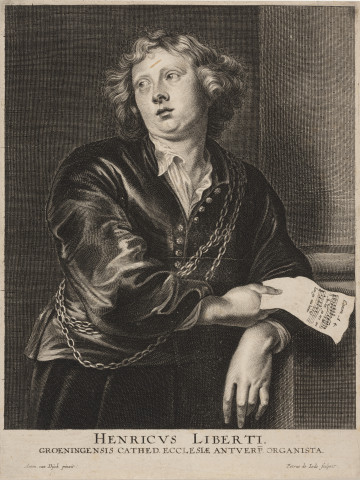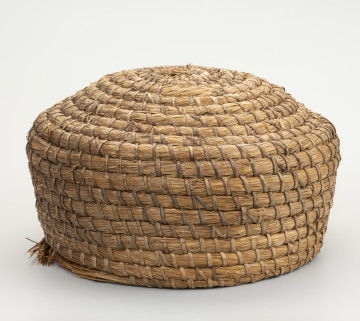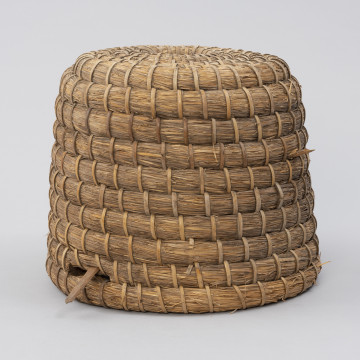
Portrait
circa 1632
National Museum in Szczecin
Part of the collection: Artistic glass
A glass vase with a wide, serrate spout. It owes its exceptional appearance mainly to the material it is made of, i.e. black, non-transparent glass. Its inventor was Georg Franz August Longueval, count of Buquoy (1781–1851). He was a mathematician, a physicist, a chemists, a philosopher as well as an owner of several glass factories. In the course of his experiments he discovered a new recipe for deep black glass mass. He gave it the name of “hyalith”, inspired by the Greek word for “glass” (“hyalos”). Its production started in 1817 and it quickly became very popular. It was used for a wide range of items, including cups, vials, vases, tea containers, candle-holders and many more. Though the count of Buquoy had the patent, soon other factories started producing similar items in response to the growing demand. The popularity of hyalith, however, lasted for a relatively short period, i.e. until the 1840s, giving place to other types of glassware.
The appearance of the material resembling items made of lacquer was the reason why such products started to be decorated with motifs inspired by Far Eastern art which can be first found in European art as early as the 17th century. The vase from Wilanów displays gilded decorations which can be found on many other items. Some gilded surfaces were polished, while others were left matte, which results in additional lines in gilded spots that bring out their unique beauty. The decorative motifs include the most typical examples: the belly shows two Chinese people in hats, turned towards one another and making a conversation, five palm trees and a stylised shrub with flowers. The lower section displays a twig with leaves and fruit, a butterfly and a dragon.
Author / creator
Dimensions
entire object: height: 12,3 cm, width: 8,9 cm
Technique
gilding,manual forming
Owner
Museum of King Jan III's Palace at Wilanów
Identification number
Location / status

circa 1632
National Museum in Szczecin

1965
National Museum in Szczecin

1890 — 1910
National Museum in Szczecin
DISCOVER this TOPIC
National Museum in Szczecin
DISCOVER this PATH
Educational path